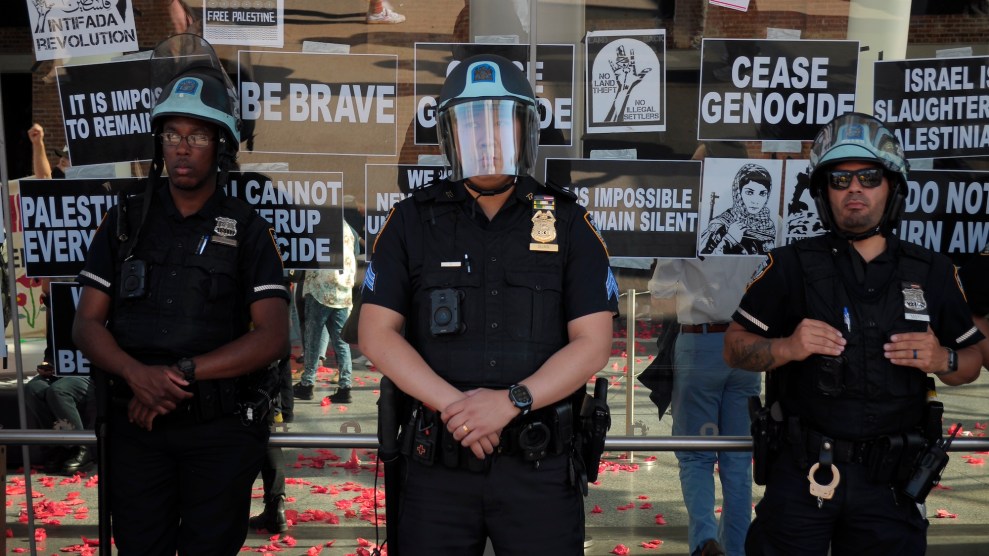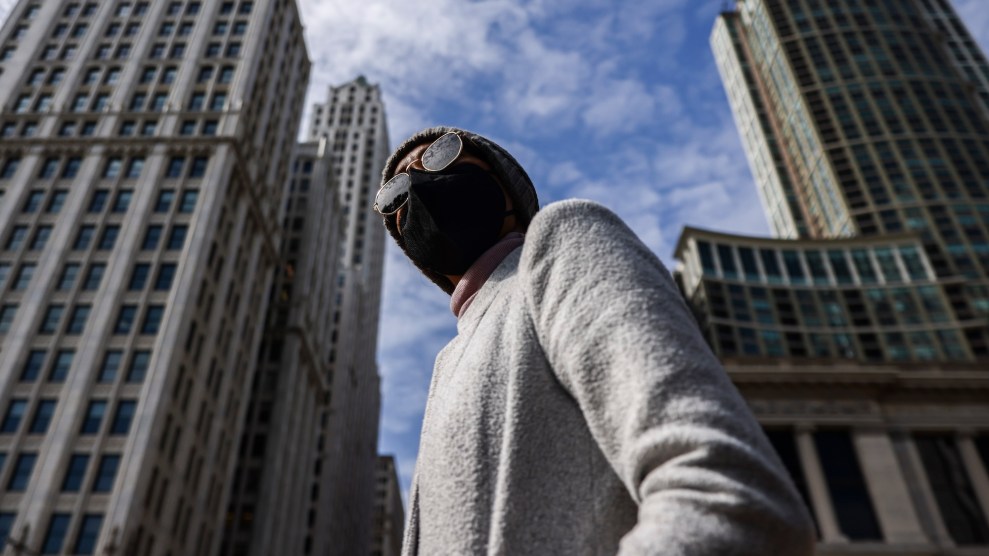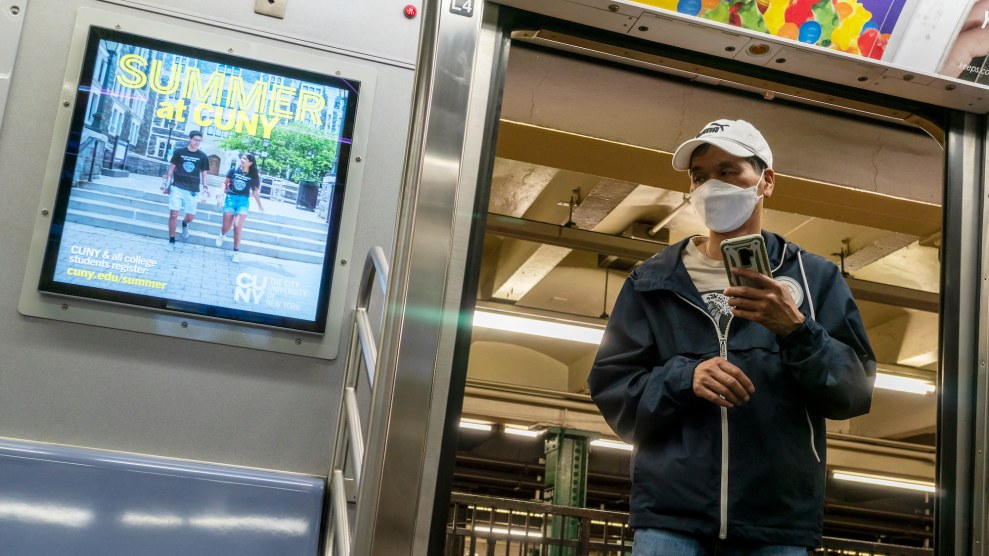
Police stand outside a pro-Palestinian rally in New York in May 2024.Jimin Kim/ZUMA
When New York’s Nassau County signed the first county-level mask ban into law in August, its deputy police commissioner, Kevin Smith, told local news that training was “being conducted [in] the department, which means across ranks.”
But that has not happened, according to the New York Civil Liberties Union. Through an information request reviewed by Mother Jones, NYCLU, a state affiliate of the American Civil Liberties Union, requested policies and training materials used to instruct the county’s police on enforcing the ban. In return, the group received a three-page legal bulletin on the “Mask Transparency Act,” and a six-slide presentation, including a title page, briefly going over the new law. The presentation reiterates the bulletin’s explanation of the law, as well as saying police officers still need to follow Fourth Amendment protections against unreasonable search and seizure—but there is little else.
“There’s none of the sort of type of training and guardrails you would expect to see in a police procedure or in a training module around how you interact with members of the public,” said Beth Haroules, a senior staff attorney at NYCLU.
The very brief materials also do not address people’s rights in protecting their health information from police, which also underscores why police officers cannot independently determine whether someone is wearing a mask for health reasons. “You’re not allowed to interrogate somebody about their private health information, or family member’s or loved one’s health information,” Haroules continued, “including whether or not you’re just Covid cautious,” something county law enforcement seems to have overlooked altogether.
The Nassau County Police Department did not respond to Mother Jones’ request for comment on the extent of its training.
The law allows Nassau County police four reasons to question people about their mask-wearing—among them, when they are gathered in a public space with other people who are wearing masks. Haroules notes that this seems to clearly target people at protests, especially recent waves of pro-Palestinian protests, some of whom may be wearing masks for health reasons—but the implications for who the ban could suddenly impact would be much wider.
“You could be waiting at a bus stop at Nassau County with a mask on, and then, suddenly, three or four more people show up,” Haroules said. “You’re all subject to arrest or interrogation as to whether or not you have a right to wear that mask.”
As Mother Jones previously reported, fear of being interrogated by police over masking has led Disability Rights New York to sue Nassau County in federal court on behalf of two disabled residents.
Since the mask ban law was enacted, two people have been charged with misdemeanors for violating it, punishable by up to a year in jail and a $1,000 fine. In both cases, Haroules says, “there probably wasn’t probable cause to arrest either gentleman.”
Haroules agrees with concerns that people of color will be disproportionately targeted for wearing masks. The Nassau County Police Department, Haroules says, “has a documented history of inappropriate interactions with people of color.” (It also has a troubled record on other fronts, including around residents’ civil rights.)
Choosing to wear masks, as Haroules told Mother Jones she herself continues to do on public transportation, is an individual decision which mask bans threaten. Having other community members “enforcing the mask ban by threatening to call police,” Haroules says, “really suggests that there’s a societal problem.”













